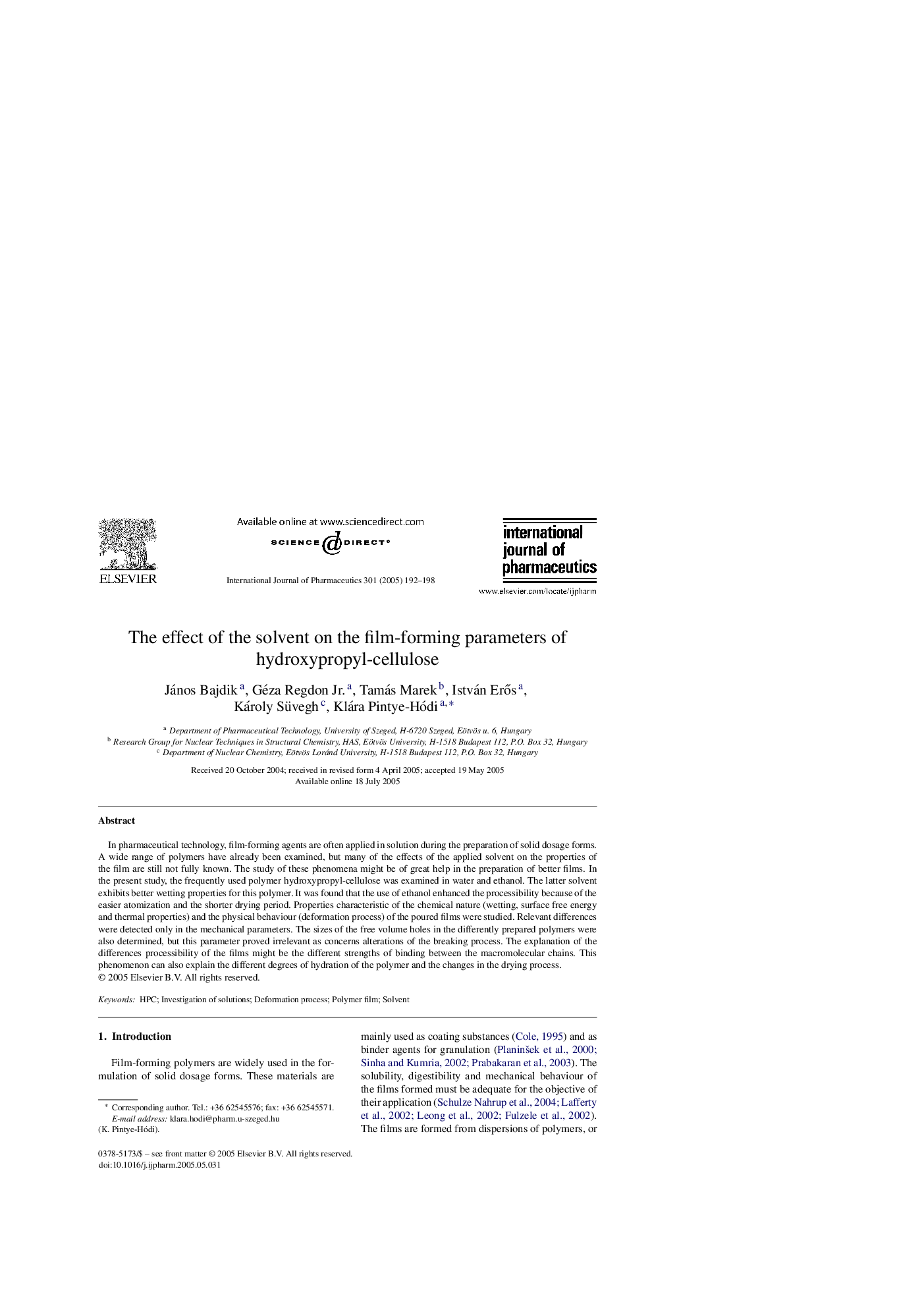| Article ID | Journal | Published Year | Pages | File Type |
|---|---|---|---|---|
| 9918657 | International Journal of Pharmaceutics | 2005 | 7 Pages |
Abstract
In pharmaceutical technology, film-forming agents are often applied in solution during the preparation of solid dosage forms. A wide range of polymers have already been examined, but many of the effects of the applied solvent on the properties of the film are still not fully known. The study of these phenomena might be of great help in the preparation of better films. In the present study, the frequently used polymer hydroxypropyl-cellulose was examined in water and ethanol. The latter solvent exhibits better wetting properties for this polymer. It was found that the use of ethanol enhanced the processibility because of the easier atomization and the shorter drying period. Properties characteristic of the chemical nature (wetting, surface free energy and thermal properties) and the physical behaviour (deformation process) of the poured films were studied. Relevant differences were detected only in the mechanical parameters. The sizes of the free volume holes in the differently prepared polymers were also determined, but this parameter proved irrelevant as concerns alterations of the breaking process. The explanation of the differences processibility of the films might be the different strengths of binding between the macromolecular chains. This phenomenon can also explain the different degrees of hydration of the polymer and the changes in the drying process.
Related Topics
Health Sciences
Pharmacology, Toxicology and Pharmaceutical Science
Pharmaceutical Science
Authors
János Bajdik, Géza Jr., Tamás Marek, István ErÅs, Károly Süvegh, Klára Pintye-Hódi,
